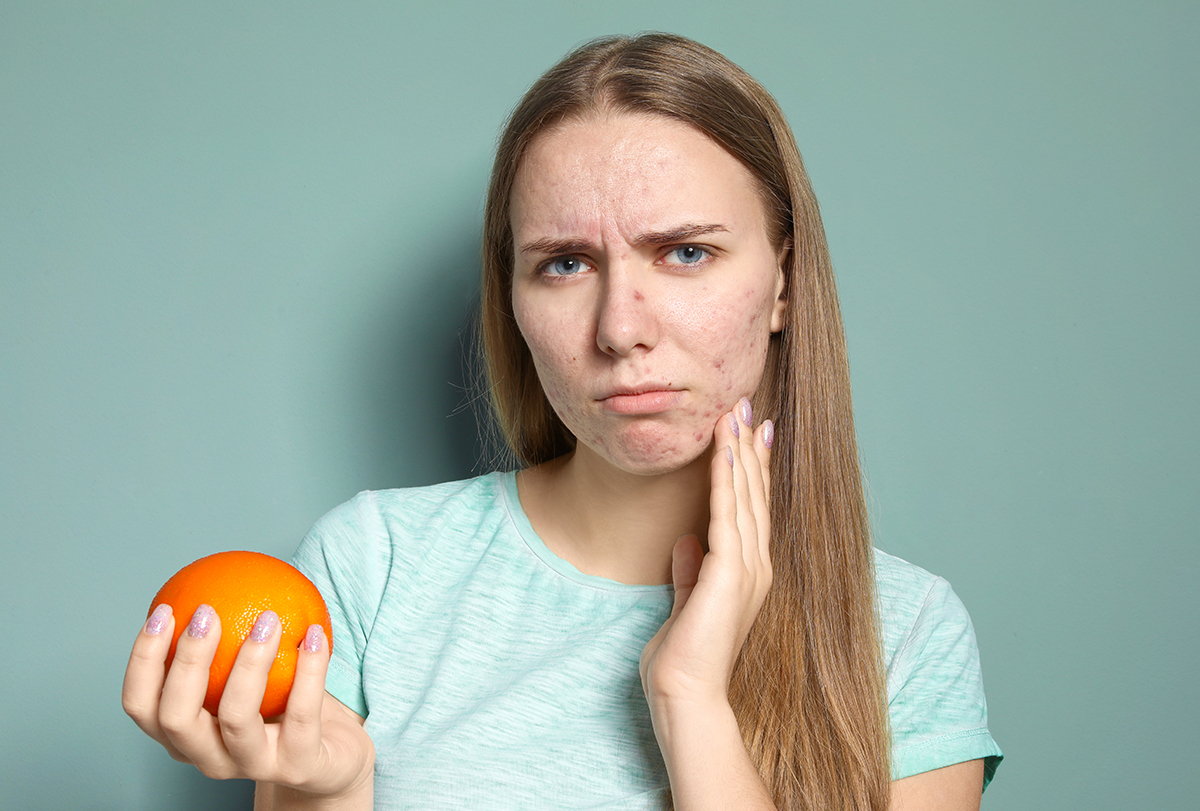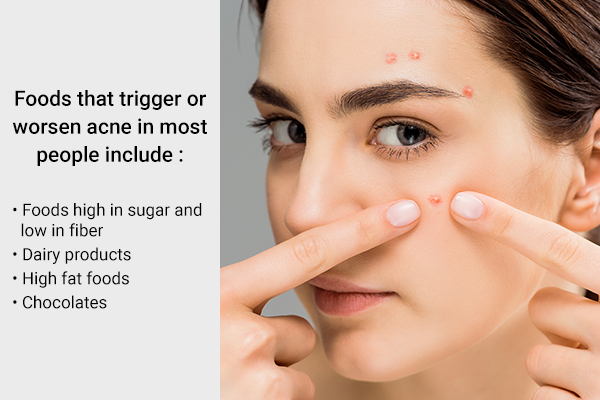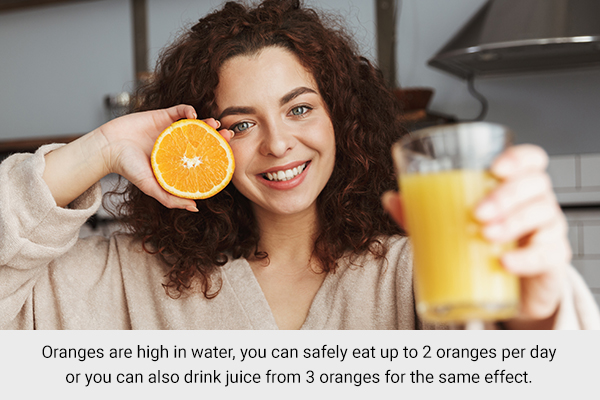In this article:
Diet plays an important role in maintaining healthy skin and keeping acne at bay. Although not all doctors may remind you to pay attention to the foods you eat, there is ample evidence to suggest that “you are what you eat.”

Oranges are one such food that will help you manage acne.
What Is Acne?
Acne vulgaris is one of the most common skin conditions affecting 15% of the population worldwide. It occurs when oil glands in the skin secrete excessive sebum, clogging the hair follicles and pores. This blockage may or may not be accompanied by a bacterial infection. (1)
Some of the common causes of acne include: (1)
- Puberty
- A diet rich in processed and high-fat foods
- Polluted air
- Sensitivity to cosmetic products such as creams or sunscreens
- Hormonal imbalances
- Genetics
Oranges Against Acne
Oranges have been gaining popularity as an anti-acne food. Rich in vitamin C, flavonoids, and bioactive compounds that are effective in reducing inflammation in the body, oranges can be very effective in preventing acne when consumed in fruit or juice form. (2)
The vitamin C from oranges is a potent remedy against acne due to its antioxidant nature and ability to aid in the regeneration of new healthy skin. In studies, people receiving vitamin C supplements along with acne treatment experienced fewer side effects from the treatment. (3)
In one animal study, the administration of orange juice for 4 weeks (along with medication for acne) was effective in reducing the growth of oil glands, decreasing inflammation, and reducing the number of triglycerides. For this reason, orange extracts or essential oils are used in topical products meant for acne. (2)
In human trials, orange essential oil was also useful in clearing acne lesions from 43% to 75% with little to no discomfort. (4)
In addition, eating a diet high in fiber was helpful in clearing the skin of acne. Even though the exact mechanism by which fiber helps in improving acne is unknown, a high-fiber diet (such as from oranges can be beneficial. (5)
All studies mentioned above indicate that eating at least 2 oranges each day can be beneficial for lessening acne.
How Can Diet Help Acne?

Multiple studies conducted in the last decade have shown the role of diet in the formation, duration, and severity of acne formation.
Foods that trigger or worsen acne in most people include: (6)
- Foods high in sugar and low in fiber
- Dairy products
- High-fat foods
- Chocolates
Foods that can play a protective role include: (6)
- Good fats such as those from nuts and seeds
- Fresh fruits and vegetables
- High-fiber foods such as whole grains and lentils
Most-Asked Questions
How many oranges can I eat in a day for acne prevention?

Since oranges are high in water, you can safely eat up to 2 oranges per day. You can also drink juice from 3 oranges for the same effect, though eating the fruit is recommended due to the presence of fiber in whole fruit.
What is the best time to eat oranges?
Eat oranges during the day such as midmorning or after lunch. Eating it first thing in the morning on an empty stomach may cause acidity in some people.
Which is the better treatment for acne: topical delivery of vitamin C or diet intake?
While both forms are effective, topical application in the form of vitamin C serums may be more beneficial as it is absorbed faster.
Why does my acne still exist when I consume oranges daily?
Oranges are not the cure-all for all acne types. Severe acne with inflammation, swelling, or cystic acne needs medication to be cured. Furthermore, acne treatment can take a long time to show improvements. Experts say it takes 3–5 months of regular and diligent treatment to show positive results.
Practical Takeaways
- Acne occurs during puberty or hormonal changes.
- It occurs when the oil glands in the skin produce excess oil that clogs follicles or pores. This may also be accompanied by bacterial infection.
- Diet plays a major role in the formation and prevention of acne, with fruits and vegetables being important.
- Oranges contain antioxidants, vitamin C, and fiber, which have been found to be effective against acne.
- Was this article helpful?
- YES, THANKS!NOT REALLY


